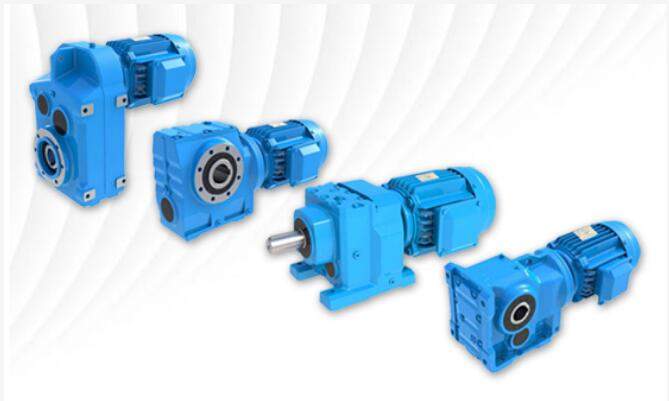There are many types of gearboxes to choose from when you’re in the market to repair or replace an existing unit or install a new gear motor. FLK Drive has option that can fit into your application with ease. To help save you time and hours of research, we’ve compiled a list of Frequently Asked Questions.
Can you make as per customer drawing?
Yes, we offer customized service for customers.
What is your terms of payment ?
30% deposit before production,balance T/T before delivery.
Are you a trading company or manufacturer?
We are a manufacurer with advanced equipment and experienced workers for more than 23 years.
What information shall we give before placing a purchase order?
You can refer to our catalogue to choose the gearbox or we can help to choose when you provide the technical information of required output torque, output speed and motor parameter etc.
- Type of the gearbox, ratio, input and output type, input flange, mounting position, and motor information etc.
- Housing color.
- Purchase quantity.
- Other special requirements.
How long is your delivery time?
Generally it is 5-10 days if the goods are in stock. or it is 15-20 days if the goods are not in stock. For big gearbox and customized reducers, it will take about 35~60 days.
How do I choose the right gearmotor for my application?
To choose the right gearmotor for your application, you should consider factors such as the required torque and speed, environmental conditions, space limitations, and efficiency requirements. It’s also important to consider the specific type of gearmotor that would be best suited for your application.
What is the difference between a gearmotor and a gearbox?
The main difference between a gearmotor and a gearbox is that a gearmotor is a combination of a motor and a gearbox, whereas a gearbox is a standalone mechanical device used to transmit power between a motor and a driven load.
What are the environmental considerations when using gearmotors?
Environmental considerations when using a gear motor include factors such as temperature, humidity, and exposure to corrosive substances. Proper sealing and ventilation can help protect the gear motor from these conditions.
What is the lifespan of a gearmotor?
The lifespan of a gearmotor depends on several factors, such as the type and quality of the motor and gearbox components, the operating conditions, and the maintenance schedule. With proper care and maintenance, gearmotors can last for many years.
How do I select a supplier or manufacturer for gear motors?
When selecting a gearmotor supplier or manufacturer, it’s important to consider factors such as the company’s reputation, product quality and reliability, customer service and support, and pricing.
Can I add an Inverter product to FLK Drive gear motors?
Yes, FLK now offers Invertek Variable Frequency Drives (VFDs). The Invertek Optidrive inverters provide advanced motor control with ease of setup and operation. They are also capable of operating in some of the harshest environments thanks to the IP66 / NEMA 4X-rated enclosures available across the E3 and P2 ranges.
How do I select the correct size for my gear motor?
In order to size the right gearmotor for your application, you need to consider several critical factors. Optimal performance and reliability are dependent on many factors, from load requirements and duty cycle to motor overload capacity and gear ratio. During this section, we will examine the factors you must consider when selecting and sizing gearmotors to ensure they can handle loads, improve efficiency, and withstand environmental conditions. Making the right choice for your specific needs requires taking these factors into account.
What is a gearmotor?
Gearmotors are made up of a motor, gear, and bearings enclosed in a housing. They are frequently used in applications that require a high amount of force (torque) at low speeds. A gearmotor powered by AC current performs many tasks related to high power, such as lifting, jacking, and robotics. Brackets, covers, and extension cables are used to mount, protect, and power gearmotors.
How does a gearmotor work?
The primary function within a gearmotor is handled by the gear unit and its stages. These features transfer the force of the motor from its input to its output. As a result, the gear motor functions as a speed and torque converter.
Power transmission products are for speed control! They typically slow down motor rotational speeds while transmitting greater torques than an electric motor can provide by itself in most applications. Considering this, the design of the product will determine whether a gearmotor is suitable for light or medium loads and for short or long power-applied hours.
Reduction ratios or gear ratios refer to how the power transmission device steps down or steps up the motor’s incoming speed (known as the input speed). Another measure of a gear motor’s performance is the maximum torque it has on the output side. Torque is measured in Newton meters (Nm), and it refers to the force of the gear motor and the load that it can move with that force.
What types of gearmotors are available?
The primary factor in determining the type of gearmotor is the shaft configuration of the gear unit. We offer three different designs such as inline helical gearmotors, right-angle gearmotors, parallel-shaft gearmotors, worm helical gearmotors and concentric units.
What information do I need to select the right gearmotor?
To select the proper gearmotor for your application, you need to know:
- Application: type of driven machine
- Hours of operation per day
- Motor horsepower (HP) and speed (RPM)
- Mounting position
- Ambient environment, temperature and humidity
- Special environment factors or operational requirements.
What are the benefits of using a gearmotor?
The benefits of using a gearmotor include:
- Increased torque output
- Improved speed control and precision
- Reduced noise and vibration
- Smaller footprint compared to separate motor and gearbox
- Simplified installation and maintenance
- Greater efficiency in power transmission
What are the different types of gearmotors?
There are several types of gearmotors available, including:
- Helical gearmotors
- Planetary gearmotors
- Worm gearmotors
- Bevel gearmotors
- Cycloidal gearmotors
- Parallel shaft gearmotors
- Right angle gearmotors
- Inline gearmotors


